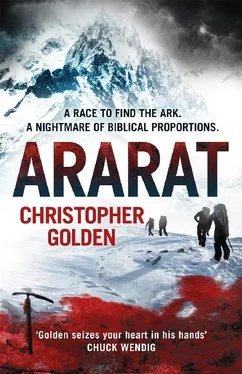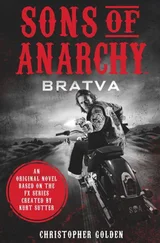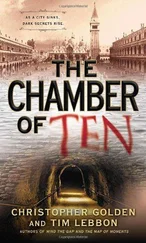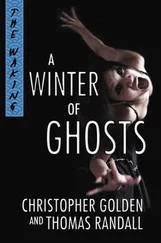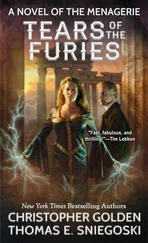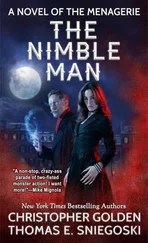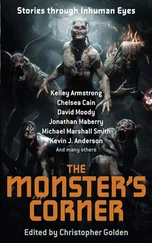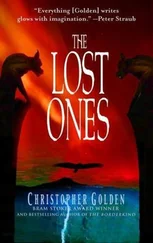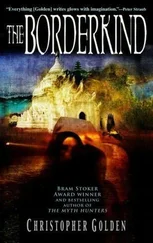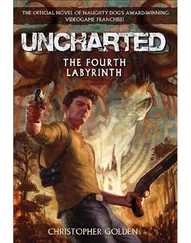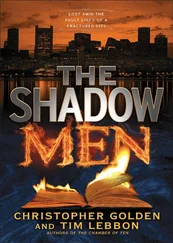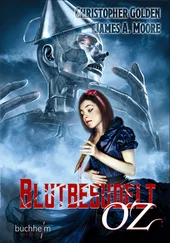The ladder ended in what could only be one of the rear corners of the ark. A plastic tent had been erected, opaque sheets that blocked out a space that seemed to be a fifteen-foot square. Lights flickered and the plastic sheeting flapped in the draft that whistled through the timbers and along the several passages that seemed to end here. A generator hummed, but most of the lights it powered were inside the plastic sheeting.
“Weather conditions on the mountain are deteriorating quickly,” Adam said. He made a slow sweep of the faces around him with his camera as he spoke. “The deeper into the winter we get, the more dangerous it’s going to be to move people and materials up and down. The temperature gets unpredictable. There’s a storm on the way, but up here the wind can make it much worse. We’d like to get this all packed up and preserved before that storm arrives in full.”
“We get it,” Walker said. “No worries.”
Adam glanced worriedly at Meryam. Hesitant.
Father Hughes sighed audibly. “If you don’t mind, Mr. Holzer, we didn’t come all this way to stare at plastic.”
Meryam turned to the camera. “For the record, Adam and I know Dr. Walker and Father Cornelius Hughes by reputation, but we’ve never met them before.”
Walker smiled at her. “What, you’re worried people will think we’re all part of some kind of conspiracy?”
“I’m not worried at all,” Meryam said. “I am absolutely certain of it. There are people who still think the film of astronauts walking on the moon was staged.”
Kim gave a soft laugh. “It’s not like we’re on the moon.”
Meryam pulled back the plastic curtain. “It’s a little bit like that, actually.”
Walker stepped toward the open curtain. He heard Father Cornelius speak his name but he shook his head, as if the priest’s voice were a fly buzzing at his ear. That low hum seemed to build up inside his skull, a vibration in his bones. He almost asked the others if they felt it, too—almost asked Meryam and Adam if it might be the whole mountain trembling, precursor to a quake—but then he felt fine beads of sweat pop out on his skin and a terrible prickling sensation, like the legs of a hundred insects alighting on him.
“What the hell?” he muttered, pausing just outside the plastic sheeting.
“Yeah,” Meryam agreed. “We know.”
She had turned pale, a jaundiced yellow cast to her skin.
Father Cornelius took Walker by the elbow. The priest had a sheen of sweat on his own forehead but his grip was strong.
“We mustn’t hesitate,” Father Cornelius said.
Walker agreed. They had come a long way to see the one discovery that the Karga-Holzer team had done their best to keep under wraps. KHAP was a Turkish, American, and British co-venture, with backing from museums and the financiers of the documentary. But so far the handful of people in various governments who had seen the report and the short bit of video KHAP had sent about the “sarcophagus” agreed on only one thing—nobody was to discuss it. Not until they had some answers.
Superstitious bullshit, Ben thought. But it was a superstitious world.
“Walker,” Kim said, “perhaps you should…”
He had one hand on the plastic sheeting. The prickling on his skin had begun to subside, though the knot of nausea remained, along with that buzzing in his skull. Walker glanced at Kim.
“You coming?” he asked, thinking it strange that she hung so far back, still practically still on the bottom rung of the ladder. The UN had sent her to observe.
Kim nodded.
“Then come on,” he said, and pushed through the opening in the plastic. Father Cornelius followed, though Walker didn’t need his aid now. Meryam came in after them and the light of Adam’s camera gleamed behind her, adding to the antiseptic, industrial yellow glare of the work lights. Walker felt that vibrating in his teeth and realized what it must be—the generators.
Just a rattle from the generators. That made him feel better. Comfortable.
He started to exhale as he studied the ancient wooden box that lay near the wall ahead of him. Broken pieces of bitumen pitch lay on the ground around it like thick shards of black glass, and he remembered the glossy charms on leather cords around the necks of the cadavers Professor Marshall had been working on. They’d been shards of bitumen. Walker stared at the hardened bitumen shell around the coffin, then studied the symbols engraved into the visible wood, at the way they seemed to shift and flow in the sickly yellow light. The insect legs crawled all over his skin again, mostly at the back of his neck, and he wiped a hand across his mouth.
Forcing himself forward, he looked down into the box.
The corpse seemed like a pitiful thing, a bit of fakery created for a low-budget horror film. His mind wanted to interpret it that way, to perceive the wrongness of the thing as absurd instead of monstrous. But as his mind began to take it in, he knew the remains were anything but fake. He’d seen monsters before. Inhuman didn’t mean impossible, didn’t mean evil. Walker had to remind himself of that.
The fingers were inhumanly long, curved into hooks by the millennia it had spent dead in that box. The skin stretched tight over its chest had a purplish-gray hue. It had withered, and there were spots in which the flesh had caved in. Bone showed through in various places on its skull and one cheek had crumbled to dust. The eyes had sunken to dried berries in its head.
The horns were pale, dusty white, like ivory elephant tusks dulled by age. Six or seven inches in length, the two points jutted from indentations just above its eyes. One had a broken tip, jagged as splintered stone, and both bore a gentle outward curve. The cadaver’s skull was misshapen, bulging outward at the top and too pointed in the jaw. In life, it would have been a very odd-looking man. Ugly, even.
If it had been a man.
Farther back in the plastic tent, Kim made a small noise in her throat. She’d begun to breathe in short gasps, on the verge of some kind of panic attack.
“Kim, do you want to step back out?” he asked, trying to disguise his disappointment. He’d expected more professionalism from her.
She said something in Korean, then seemed to remember none of them spoke her language. “Does anyone hear that?” she said in English.
Walker tamped down his own nerves, forced himself to ignore the prickling of his skin. He glanced again at the horns on the corpse in the box, then at the long, thin, jagged teeth, yellowed by time but stained a dark brown in places. Whatever it was, they weren’t going to be able to fully identify it until they got it off the mountain.
“What do you think?” Adam asked.
Walker sighed. The plastic sheeting rippled with a gust of wind that traveled all the way through the ruin of the ark. Despite the breeze, the air felt thick and close, suffocating. “What I think is that you never should’ve opened it outside of a controlled environment.”
Meryam stiffened. “As far as we were concerned, this was a controlled environment. The other remains on the ark had been exposed for days before we arrived and they are in the condition they’re in. We had no reason to expect—”
Father Cornelius pushed past Walker and strode up to the box. Bitumen crunched under the priest’s boots as he got his first good look at the cadaver. For a moment he appeared to hold his breath, then he faltered. He slipped a hand into his jacket pocket and came out with a full rosary twined around his fingers, kissed it, and began to whisper a prayer that came as naturally to the man as breathing.
Walker sighed. “Father, come on. I asked you along on this jaunt because I expect more from you than that. You’re a scholar, not some prehistoric shaman.”
Читать дальше
